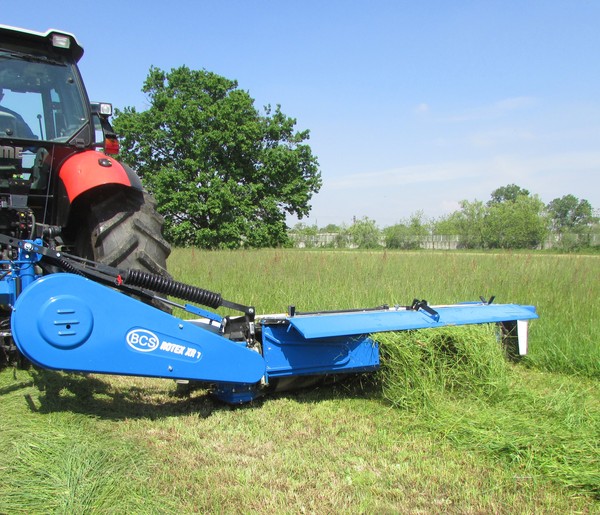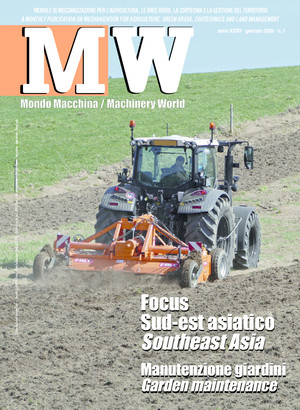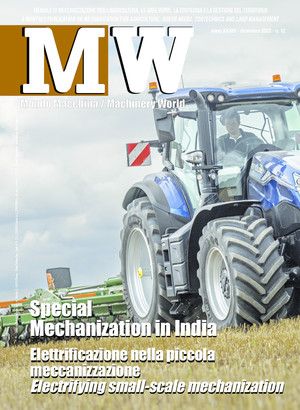
BCS: competitive in a complicated market
BCS held a press conference in Abbategrasso headquarters for the presentation of financial data and the activities of the group. Sales rose thanks to a fine-tuned strategy for the diversification of products and broadening the markets. Human resources are a cardinal factor in the company's philosophy
The group managed to hold out with an increase in sales by a few percentage points and many new products introduced in spite of crisis conditions involving various regions of the world in recent years. In a few words, this covers the balance sheet presented to the press in Abbiategrasso November 3rd by the BCS Group, a family owned enterprise which has taken on the scale of a multinational while maintaining their headquarters in Abbategrasso. Here, on the outskirts of Milan, Luigi Castoldi established BCS SpA in 1943 which is still the parent company of the group. Since then, other trademarks have been brought in, that is, Ferrari, Pasquali, Ma.Tra. and Mosa and production plants added in Italy in Luzzara and Cusago.
The data on the numbers, obviously, must be read in a more complicated setting for discovering that the 4.69% increase in sales between September 1st 2014 and August 30th 2015 was the result of a 5.31% gain in the agro-green sector and a 2.11% rise in the energy sector. Exports showed a 0.5% decline but the agro-green sector rose 0.5%. Sales in Italy climbed 6% but went in the other direction in Germany, Portugal, the Netherlands and Russia. In summary, the overall picture is variegated due, in part, to a strategy for the differentiation of products resulting in an ability to benefit from various opportunities coming up and the advantage of spreading the risks on markets differentiated by type and geography.
As regards product specifics, overall, brands in the agro-green sector accounted for 47% of tractor sales, 44% of two wheel tractors, 5% of haymaking equipment and the remaining 4% of machines for the maintenance of greens. This latter percentage, though not relevant as an absolute figure, is possibly the most significant because is shows a 106% surge over the previous year. On the other hand, the growth of two wheel tractors was lower for the percentages, plus 6% and 7% respectively, but the figures themselves are much more consistent. The only negative sign was for haymaking machinery which shed 28%.
Also the outlook for the immediate future is variegated precisely because account must be taken of the differences displayed in the economic and political conditions in various areas in which the group is present. Though Iran, with the removal of sanctions, can offer business opportunities seeing that BCS has maintained relationships of reciprocal confidence with dealerships in the country, no clarifications are seen in such European countries as Slovenia, Finland and Greece or in Turkey, China and Algeria in looking around the rest of the world. In any case, estimates of world GDP growth indicate a very slow pace compared to the rate estimated in years past: the increase expected is around 3.6% for 2016. A BCS statement said, “A situation for which the answer can only be investments in research and development which, however, must meet with structural reforms, above all for manufacturing as a locomotive for development.” Thus BCS is cautiously looking to further growth for the domestic market and positive signals elsewhere around Europe. There are positive expectations for Canada and the United States where exchange rates are favorable for exports and where BCS is beginning to export tractors in addition to two wheel tractors already on these markets for some time. Conditions are less clear in South Africa and in Brazil, where BCS recently invested in the opening of a subsidiary. Decisively positive signals are displayed by India, where another subsidiary is in operation, and in neighboring countries and China where increasing sales are expected.
So overall, the prospects appear positive but the outcome is linked to various factors which do not depend solely on business initiatives.
Some are related to economic reform in Italy and others to political conditions in developing countries. The ability of the group to quickly adapt to conditions by developing products suitable for real conditions in a single country will be decisive.
Underpinning everything is the choice to maintain manufacturing in Italy, where BCS counts 700 workers, while running as many as seven subsidiaries abroad with workforces of 150 people. In this case, as for Italy, the prospects for development and social and economic conditions also justify the installation of production facilities for turning out models for the local market.
BCS President Fabrizio Castoldi declared, “The people who work with us are the true patrimony of the company because very often they are the children of the workers in the company founded by my father, Luigi, and love what they are doing.
It can be said that by now, this work is in their DNA. For this reason, we will not delocalize in spite of the certainty of favorable conditions in many other countries, especially in light of the complexity and heavy costs of the Italian system involving not only the pressure of taxation, one of the highest rates, but especially due to an irrational bureaucracy carrying costs you cannot even predict.”
The general climate in the group is positive and trade union relations, as well as contract demands, appear to be based on what can be described as “a constructive dialogue”. To back up this statement, union representatives were also invited to attend this year’s press conference during which words were delivered confirming that the style of the company was based on belonging and participation.








